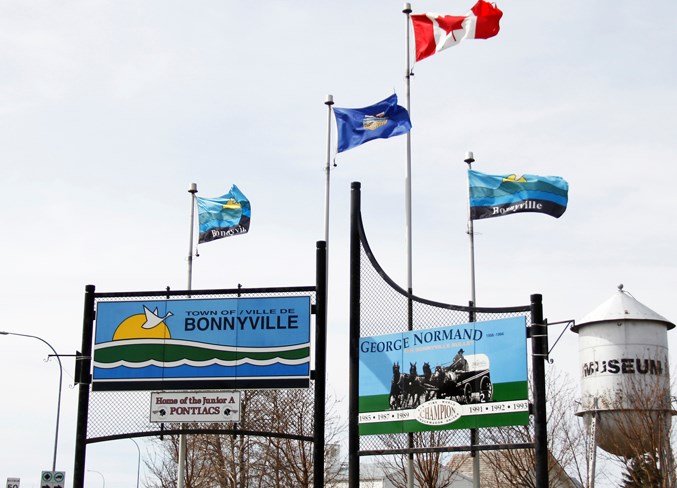Better roads for less long-term costs may be closer to becoming a reality for the Town of Bonnyville.
During their May 22 council meeting, representatives from Industrial Road Bond Services, Rick Hansinger and Brad Bacon, gave a delegation that caught the attention of everyone around the table.
The treatment strategy they’re proposing for the town involves the use of specialized equipment, and the introduction of a new chemical that would help decrease deterioration and subsequently increase the life-span of roads.
“It’s very difficult to extract the water from the clay. The surfactant that we’d use reduces the surface tension of the water, the electromagnetic attraction between the water and clay is reduced, and during compaction almost 100 per cent of the water is expelled,” Hansinger explained, adding that once that’s complete it’s permanent.
“The soil then becomes impermeable to water, it becomes an all-season road. The road no longer absorbs moisture so the bearing strength is maintained.”
Originally from British Columbia, Hansinger came to Bonnyville to work for Bacon for a short span. During that time, the pair started discussing the possibilities of the road construction strategy, and its potential applications, particularly with areas frequented by oil industry.
So far, they’ve already had meetings with companies such as CNRL and Imperial Oil to discuss the rehabilitation of their roadways.
Using the equipment they’re proposing, Hansinger told council that they would be pulverizing the existing material, grinding it up, adding in the surfactant, and compacting it back into the road. Once the process is complete, its able to be used as is or have cold mix or asphalt laid on top.
“Essentially, we make a road base out of the material on site. We don’t need to haul anything in, so it saves a lot... After the base is treated, the asphalt will last much longer because we’ve made it impermeable to water, so you’re not going to get the swelling and shrinkage.”
Following the treatment, he said the town could expect to see a 75 to 90 per cent dust reduction, a 70 per cent reduction in maintenance costs, and a 250 per cent increase in bearing strength following compaction. The road should also be more resistant to developing surface defects.
“What really interested me is that the cost of doing that type of surface is about 25 per cent of the cost of cement and asphalt. I was thinking, if we could do all of the back alleys, it’d be a huge saving for the Town of Bonnyville,” said Coun. Rene Van Brabant. “If they can just grind the asphalt from the old back alleys we have now and add something to make it waterproof, it would save us a lot of money going that way.”
The surfactant chemical is manufactured in Edmonton, and was developed by a company out of Calgary who spent 25 years perfecting the formula. While the chemical itself is a little pricey, Hansinger noted their working to ensure they make the best use of every drop.
“Because of the equipment that we use, and the injection system we’ve developed, it’s a very efficient use of the chemical. It’s quite expensive, so we’re designing equipment in the Okanagan with a company that produces sprayers for orchards to precisely calibrate an electrical or hydraulic power balance to deliver the precise amount of chemical into the soil.”
While no municipalities in the area have had the treatment done yet, Bacon noted there was a section at Mahkeses completed about 10 years ago, as well as a road in Conklin.
“I think the idea of adding the surfactant as a road stabilizer, that’s what tweaked my interest. We can add a product into the existing material, mix it all up, and that becomes a stable road mix,” said town CAO Mark Power.
Referencing a couple of roads that the town has slated for paving this year, such as 66 St., Power said if the treatment works as well as promised, it would be ideal for a number of areas in town where roads have failed because of the condition of the subgrade.
“If you could sit down and work out the costs, and we could get a definitive cost, we want to try it, to see it work and if it does save us... Normally, we don’t have people come and make presentations like this to council, but this is brand new to all of us and we’re interested. But, it’s going to come down to dollars and cents.”



